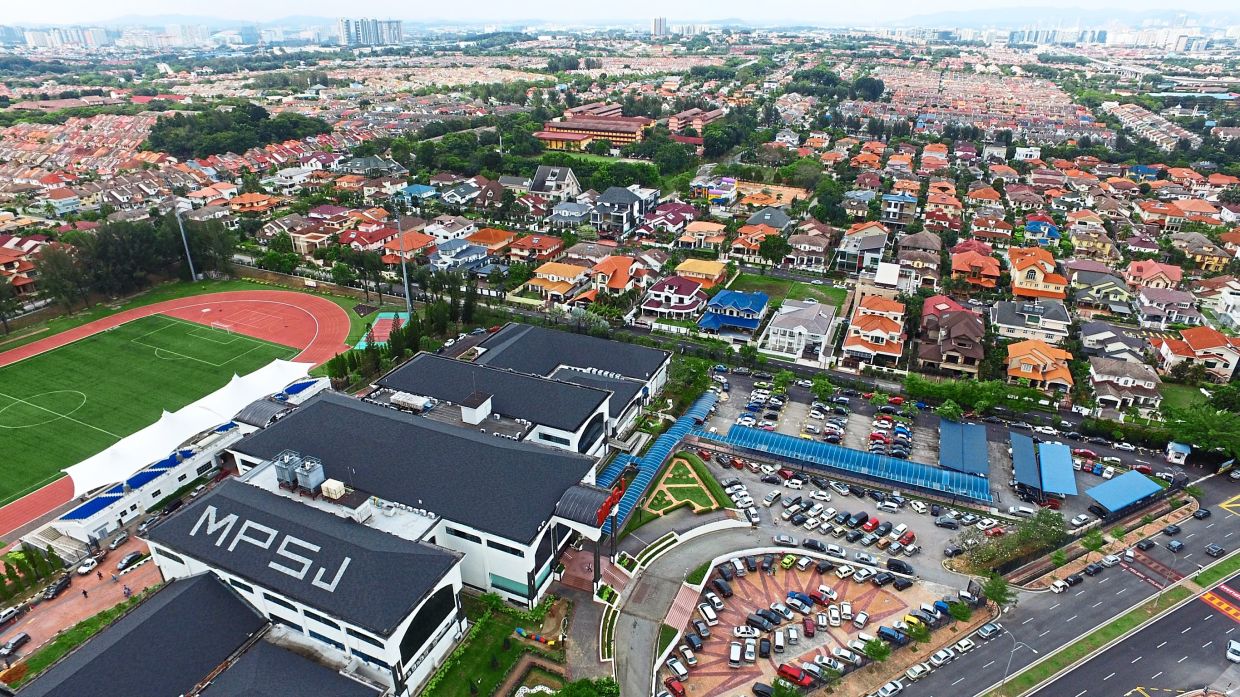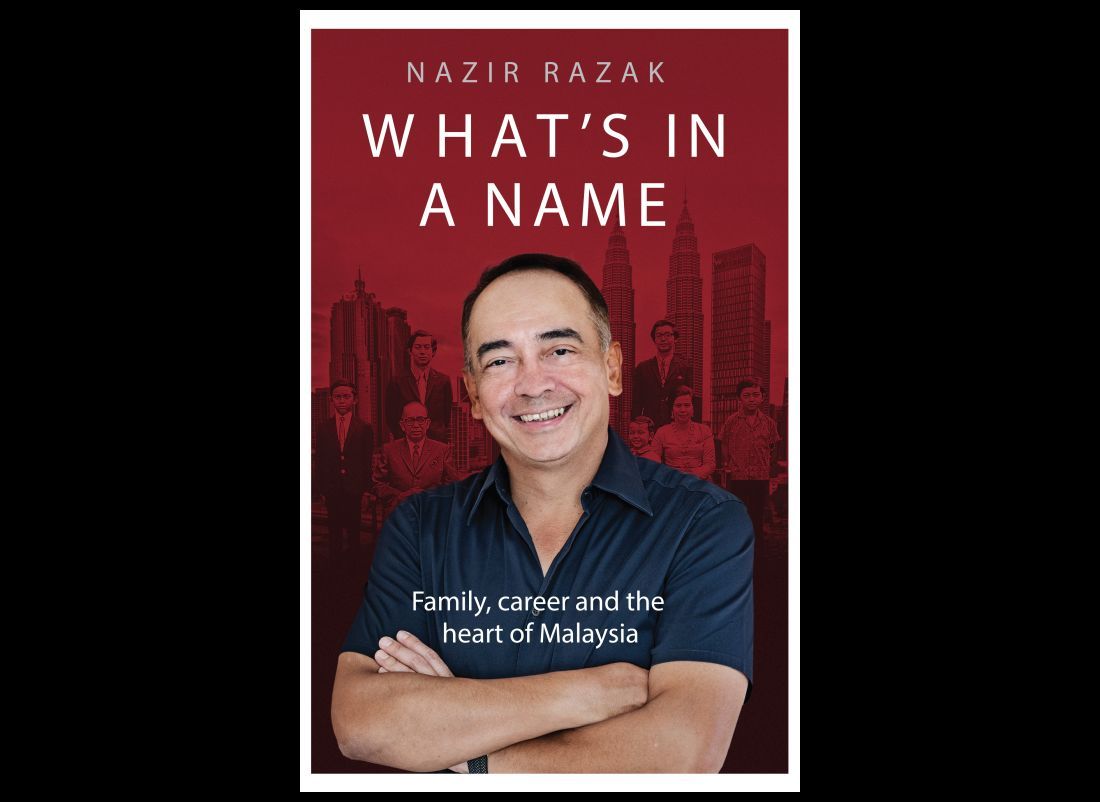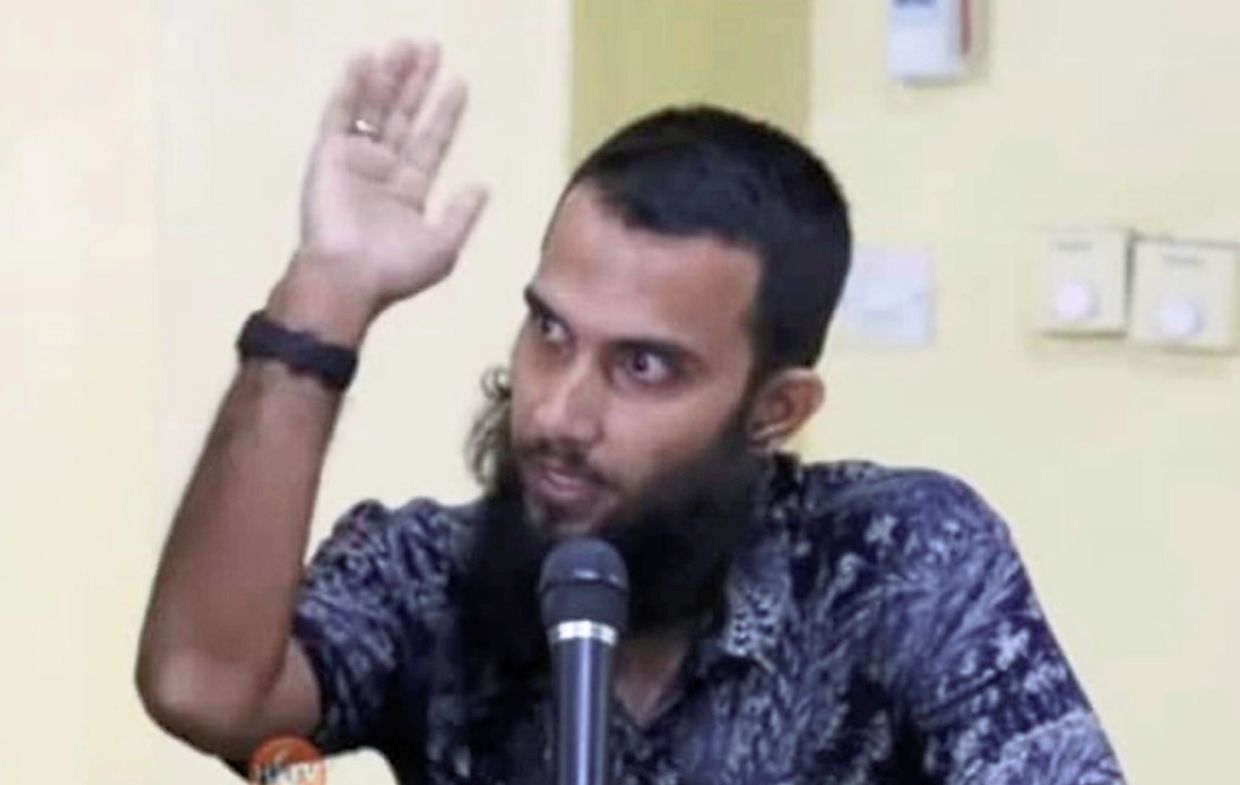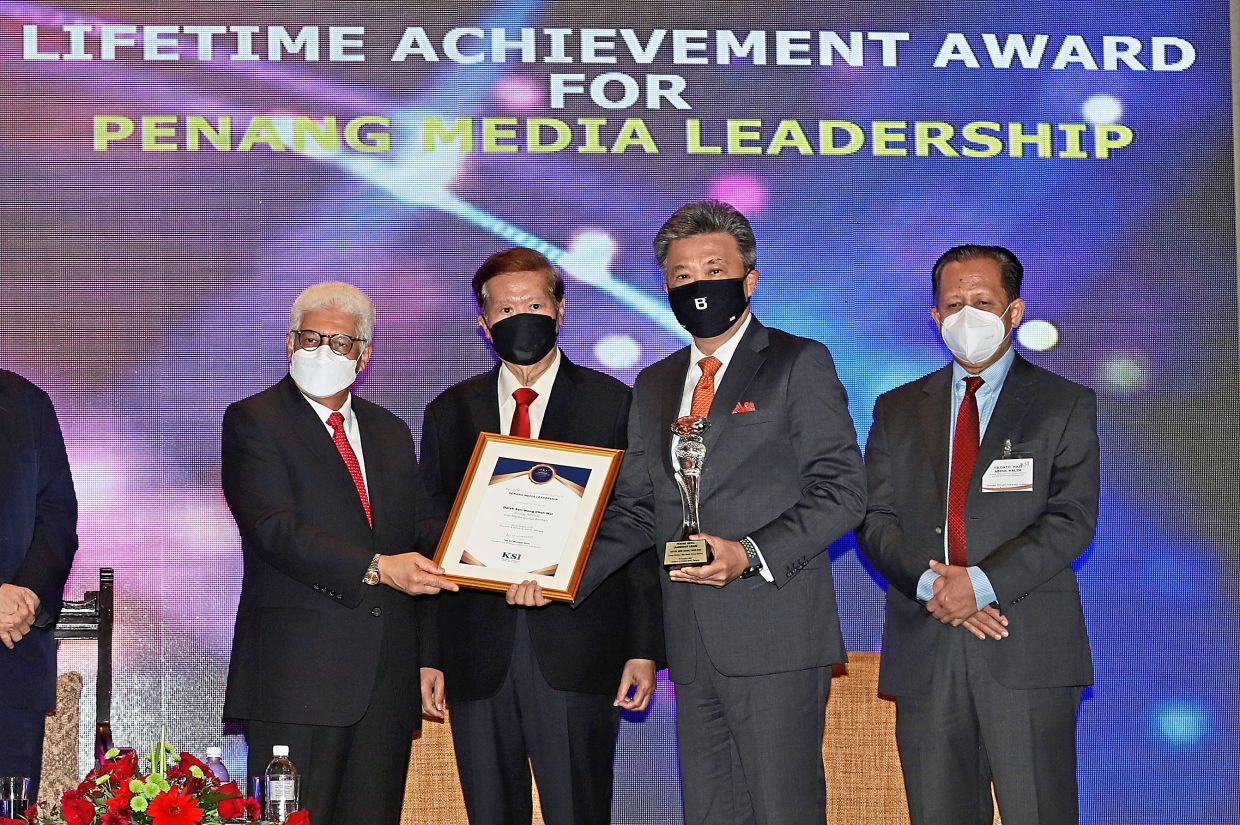


No segregation: When the massive Subang township was built, it was purely multi-racial in nature, and no one could really tell which home belonged to which race.
AS a student entering Universiti Kebangsaan Malaysia in 1980, an institution set up to promote the national language, there were some important lessons that awaited me.
Its student population was predominantly Malay, nearly monoethnic to be honest. The university, aware of the racial imbalance, began making changes.
Coming from the richly diverse Penang, the tiny presence of non-Malay students in a rural setting was an unsettling beginning to my student life. I had never heard of the campus’ site, Bangi, before I arrived in Selangor.
But being put in an unfamiliar, even uncomfortable environment, and needing to make friends with people from other races over the next three years, made me understand Malaysia better.
With that, I’d like to address the New Economy Policy, which has touched the lives of every single Malaysian. The NEP, which is an affirmative action, has turned 50 years old.
A milestone has been achieved, yet the half century birthday has generated little buzz. Perhaps it remains a contentious and sensitive issue and only a few of us can rationally speak about it.
At UKM, I made many Malay friends as well, and they opened my eyes and mind. I didn’t realise that some were so poor that they had to send home some of their scholarship money to help their parents.
Many had difficulties coping with their studies because the books were almost entirely in English. They came from Malay medium schools, sat for their exams in Bahasa Malaysia and had finally entered UKM – only to realise that the reference books were in English while lectures were in Bahasa Malaysia.
It would have been impossible for them to compete on pure meritocracy. It’s like expecting an Aboriginal kid living in the bush to be equal with a Caucasian Australian kid enjoying the trappings of suburban life.
The Malays and Orang Asli, who were poor in English, had to undergo English lessons and exams if they were to remain in university.
Having a poor command of English doesn’t dim intelligence, but it would certainly disconnect the person from the outside world, where English remains the most important international language.
I remember some students, who turned to me for help, asking if they could memorise English essay writing!
But as time went by, I empathised with their predicament. We’re talking about the flares and fun of 1970s and 1980s Malaysia, before the Internet age.
Coming from rural areas, they had no opportunities or finances to attend tuition classes, buy model books, and had no exposure to English or other cultures either.
I understood and appreciated the importance of opportunities and affirmative action better, while my bumiputra friends were equally shocked about their non-Malay friends not getting scholarships, especially those who deserved it.
Some forged friendships with non-Malays for the first time since they had never been exposed to living in a multi-ethnic society with its many complexities.
I used to joke that I had a “Fama scholarship,” meaning it was sponsored by my father and mother, but it’s true that my parents could afford to pay for my university fees.
They felt the fees, costing only a few hundred ringgit per semester, were cheap. More importantly, they were grateful they didn’t have to shell out for an overseas education, which would have cost a bomb. There were only five public universities while private ones were non-existent then.
But for the less privileged non-Malay students, there certainly was resentment, and this is totally understandable, too. My Malay friends also understood that there were poor Chinese and Indians, and that not every non-Malay came from a rich family.
I had an Indian friend who told me his rubber tapper father from Pahang was the only one in the estate who didn’t squander his hard-earned money on liquor and gambling because he saved every single sen to pay for his university fees.
Along the way, many qualified non-Malay friends, who had worked hard, failed to be accepted into medical, law and engineering schools simply because of the quota system. It would be difficult for them to have an objective judgement of the NEP.
The NEP, a product of the post-May 13 racial riots in 1969, was formulated to eradicate poverty and restructure society. Specifically, it was installed to rebuild Malaysia to address the unequal and unbalanced economic foundations that put Malays at a disadvantage. In a nutshell, Malays needed a fair share of the economy to become full partners.
The NEP was announced as part of the Second Malaysia Plan (1971-1975) as a 20-year policy. The government would implement the NEP, unapologetically, to shift the imbalances. Bumiputra would be spelled out specifically under the NEP, unlike the first two Malayan Plans and the first Malaysia Plan, where the term “rural inhabitants” was used.
In the book by Dr Chandra Muzaffar, The NEP, Development and Alternative Consciousness, he wrote that Malay poverty was already raised in the 1920s and 30s by reformers like Syed Shaikh Alhady, Haji Abbas Taha and Zainal Abidin Ahmad. The late Universiti Malaya vice-chancellor, Ungku Abdul Aziz, produced what must be regarded as the first academic analysis of Malay poverty by a Malaysian in 1975 entitled Facts and Fallacies on the Malay Economy.
In 1970, Prime Minister Tun Abdul Razak declared the government’s intention to create a Malay commercial and industrial community that would be capable of directing, managing and working in enterprises at all levels of complexity on par with the commercial classes of other races, as detailed in Datuk Seri Nazir Razak’s book What’s in A Name.
“That in turn meant enhancing the way Malays were educated, trained and employed so that the Malays could do high-level jobs. The ownership of business would also have to be shared more equally,” he wrote, because in 1970, Malays only owned 2.4% of commercial companies.
Poverty had been reduced, for example, among rubber smallholders, with incidence of poverty reportedly falling from 65% in 1970 to 5% by 1975, with similar drops in other sectors, including rice production.
Fifty years later, the NEP has successfully produced a strong Malay middle class, which is essential for a good economy. In many countries, the absence of a middle class has resulted in imbalances.
Those of us over 60 would recall that Malaysia was once racially segregated into the conclaves of various ethnicities. It was bad because locations were identified by race, for example, Kampung Baru in Kuala Lumpur was Malay and Pudu was Chinese, while Brickfields was Indian. Each time there was a gathering in Kampung Baru, it stoked unnecessary fear.
But when the massive Subang township was built in Selangor, it was purely multi-racial in nature, and no one could really tell which home belonged to which race. Certainly, the discounts for bumiputras have helped build multi-racial neighbourhoods. Urbanisation has also been successful for bumiputras, an objective of the NEP.
Having multi-racial workforces – the objective of uplifting Malays to be professionals, including sending them overseas to study – in Malaysian companies is certainly a positive result of the NEP.
No doubt, the NEP has produced many Malay tycoons, but in the 1970s and 1980s, many non-Malay tycoons had also emerged.
The big names include Tan Sri Azman Hashim of Ambank, Tan Sri Syed Mokhtar Al-Bukhary, Ananda Krishnan, Tan Sri Vincent Tan, Tan Sri Francis Yeoh, Tan Sri Jeffrey Cheah, and then there are newer ones like Tan Sri Tony Fernandes, Tan Sri Lim Kang Hoo, Tan Sri G. Gnanalingam, Tan Sri David Kong and Tan Sri Lim Wee Chai. There are opportunities for Malaysians to rise to the top, after all.
Some of the Malay tycoons still in the game today, albeit with NEP leverage, remain good businessmen providing livelihoods to millions of workers of all races.
They didn’t dispose of their shares, earned for being Malay, to get short gains and land trophy wives, or buy over-priced nasi lemak or noodles in airlines via related transactions.
The NEP has been successful, although we can’t ignore that it has also been a hurdle to genuine national unity. The number of poor Malays and non-Malays remains.
The NEP also took away the insecurity of Malays. As Dr Chandra wrote “by and large, Malay apprehensions are linked to the poverty of the majority of Malays in relation to what is perceived as non-Malay affluence.” That was his view in 1989, and to some extent, perhaps to a lesser degree, in 2021, the situation remains the same.
It can’t be denied that national unity would be hard to foster if vast sections of the population remain poor, but at the same time, it doesn’t help if a section of Malaysians feel deprived and unfairly left out.
“Even if Malay capitalists are created but Malay poverty persists, the problem of national unity will remain. For in such a situation, the question of Malay poverty can still be exploited to bring about ethnic conflict,” he added.
That, unfortunately, is the reality, even when corrupt Malay leaders would literally steal millions, if not billions, from institutions purportedly established to protect the interests of their race.
Then, there are also politicians who perpetuate the belief that it’s better for a corrupt Malay leader to have the reigns than a clean non-Muslim. They even justify bribery from a supposedly religious standpoint.
Dr Chandra also wrote that the NEP didn’t mean touching on a significant segment of the Chinese employment market “namely family businesses and other small and medium-sized enterprises.” Logically, it certainly doesn’t mean imposing a 51% quota criteria, for example, for small companies built by others.
Nazir wrote, “I strongly believe that, had later politicians respected the pledges made by Abdul Razak and (deputy prime minister) Dr Ismail (Abdul Rahman) that the NEP should last for no more than 20 years, it would have been regarded as a shining success.
“The NEP lives on for 50 years after its creation, a distorted, twisted and often counterproductive version of the original creation.”
I don’t think many Malaysians in their right mind would argue against the objectives of the programme, which sought to correct the imbalances without being unjust, over a 20-year period. It targeted 30%, although the Malay population was almost 60% then, and even more now.
But no Malaysian should be unfairly left out of employment opportunity or admission into university for not being bumiputra, especially after half a century of the NEP.
We must slowly remove the race narrative from our policies, including the NEP, with a needs-based approach. Ultimately, it would still revert to the needs of the bumiputras as they form the majority.
Having said that, the number of non-Malays has continued to shrink sharply. So, where do all these policies lead to, and does it mean that affirmative actions would finally need to be applied to the minorities, which could be just 20-25% of the population? Already, there are more foreigners than Indians in Malaysia.
The competition against bumiputras may come from second or third generation Cambodians, Bangladeshis, Indians, Rohingyas, Syrians and Pakistanis, who may insist that they have the right to enjoy the same privileges as Malays.
They could say that they are bumiputras under the Federal Constitution, as they are Muslims who practise the Malay way of life, and possibly even have Malay spouses. And surely, the third or fourth generation Malaysians, of Chinese and Indian ethnicity, shouldn’t have less entitlement than them.
Malaysia now needs a serious recalibration. We will lose our lustre as a nation to foreign investors if we don’t snap out of our slumber. We continue to slip down the ladder in Asean, losing to Vietnam, while Indonesia is now just a few steps behind us.
We can’t sustain what we have. We need to create a better Malaysia and make the most of our diversity as a truly Malaysian nation. Unfortunately, I don’t think we can rely on our politicians to decide our future. We must do this together.
Let’s start with focusing our attention on enlarging the Malaysian pie instead of talking about the size of the slices, when the pie is shrinking.


THE Melaka state election is one nobody cares about, really. The only people getting excited are the politicians who have trumped each other and are now doing everything to grab power in the state.
It’s politics at its ugliest again. Over the coming weeks, politicians will be telling Melakans how they are doing all this in the interest of the people.
When facing the Malay electorate, they will also certainly throw in the line about protecting the race and religion in their social media postings, since physical political gatherings have been banned. And for the other races, they will offer a different narrative.
For the first time, the people of Melaka are being asked to choose a new government from a line-up where none of the politicians seem to differ much.
The parties are either off-shoots of each other or have been in the political game for decades now.
But this time, just after slamming party hopping and suggesting the need to enact laws to stop such betrayals, the politicians are back at trying to justify their actions, and even looking for places in their parties. Worse still, they are possibly fielding these traitors as candidates.
Whatever happened to the Memorandum of Understanding where both the government and opposition agreed on barring party hopping?
Don’t waste your time expecting politicians to live up to any form of lofty principles because the only thing that matters is the end that justifies the means. And that includes party hopping.
Four Melaka state assemblymen caused the state government to collapse after they withdrew their support for Chief Minister Datuk Seri Sulaiman Md Ali.
They are now homeless. So, they are looking for a platform to contest under its banner.
The attention is on Datuk Seri Idris Haron – who was sacked from Umno – and his allies.
PKR president Datuk Seri Anwar Ibrahim, who has criticised political frogs, seems to be justifying their actions for wanting to join his party.
Going by such warped logic, he’d conveniently say it is traitorous if PKR’s elected representatives quit the party to join a government party or be an independent, but not if it’s the other way around.
Some may even go further, praising such defections as noble and courageous, and deserving commendation.
Last week, Anwar reportedly explained to his party grassroots his reasons for standing by Idris Haron and three others, saying they withdrew their support for the Bersatu-Umno state government based on negotiations with Pakatan Harapan.
Therefore, Harapan can’t abandon them with the turning of the tide, he said.
“The fact is clear. There was a negotiation between Malacca Harapan with the said assembly persons.
“The negotiation led them to decide to pull their support from the state government in an understanding that they would not be betrayed and left behind afterwards,” Anwar said.
Besides Idris, the other three include Datuk Nor Azman Hassan (Umno-Pantai Kundor), Datuk Noor Effandi Ahmad (Bersatu-Telok Mas) and Datuk Norhizam Hassan Baktee (Independent-Pengkalan Batu).
That’s the problem with some politicians. They talk about “negotiations”, which is, in fact, a euphemism for a plot to topple the state government.
No one seems to care that when the voters picked them, it was based on the party they represented. Suddenly, for political expediency, and to justify their defections, a whole load of excuses is cooked up to convince the electorate.
The most glaring example must be former lorry driver Norhizam. The ill-mannered politician was voted in the 2018 general election because he contested under the DAP platform.
Let’s be honest, in many predominantly Chinese constituencies, DAP candidates are almost a shoo-in. As the saying goes, if you put a monkey to contest under the Rocket banner, the primate would still win.
The DAP has many good, talented lawmakers, but we all know that some are just warming their seats in the state assemblies and Parliament. Many voters don’t even know their representatives.
In the case of Norhizam, he is well-known, but for all the wrong reasons. He was an Umno member before joining the DAP. If he had continued in Umno, he would have gotten nowhere in politics.
The DAP, as expected, wouldn’t want him back. He has been a nightmare and a reminder of the adage that we deserve the Yang Berhormat we elect. His resignation also led to the downfall of the Pakatan Harapan government.
Like a bad sequel, he is now part of the group which toppled the Umno-Bersatu state government. He is a serial political katak.
Ironically while DAP has turned down the four, Anwar seems to have taken a different stance. He believes party members need to see the bigger picture, saying the party needs to be tactical to garner support from everyone.
“You must understand that changes have to happen, but not with our uncompromising attitude.
“It can happen only when we are being wise (hemah), being intelligent and by attracting support from every quarter.”
Yesterday, it was announced that Idris has joined PKR and Nor Azman has entered Amanah, which is headed by Mohamed Sabu.
For goodness’ sake, please spare us the drivel because this has nothing to do with anti-hopping principles but winning the state election at any cost.
Umno, which previously encouraged party hopping, is now getting a taste of its own medicine.
So, when the Sabah state government collapsed in 2018 following the defections of six Barisan Nasional state assemblymen, many cheered the endeavour as the nation celebrated the defeat of the BN federal government.
And even the DAP was quite happy to be in the company of frogs as it became a component of the state government. These kataks were heralded as heroes for helping set up a new state government. Not many complained nor branded these defectors frogs, except their respective parties.
But now, what goes around comes around. Parti Warisan Sabah chief Datuk Seri Mohd Shafie Apdal has now found that three Warisan elected representatives, so far, have quit the party.
So, Malaysians, especially us voters, must decide if we really want to stop these political frogs or bend the rules when there is political expediency, or when it suits our political allegiance.
There is an apt and beautiful Malay phrase, cakap tak serupa bikin, which translates in English to, “not meaning what you say, not saying what you mean.” Somehow, it’s much more potent in the national language. That best sums up what you can expect during the state election campaign.

What’s in a name?
By Nazir Razak
MOST of us are born into ordinary families but we have been taught from a young age that we have to protect the family name. It does not matter if we are rich or poor.
Upholding the family honour involves worthiness, respectability, trust and social standing.
In the case of Datuk Seri Nazir Razak, this is even more crucial.
There were two prime ministers in his family. His father was the late Tun Abdul Razak and his eldest brother, Datuk Seri Najib Tun Razak, was prime minister too.
Razak’s brother-in-law was the late Tun Hussein Onn, who succeeded him (Razak) as prime minister.
Nazir was not born into an ordinary lineage, unlike the rest of us, so it goes beyond the name, it is a legacy.
Razak rebuilt the nation after the tragic racial riot of May 1969, formulated the New Economic Policy to reassure the bumiputras of their future and correcting the ethnic imbalance in the economy.
A man of great foresight, he set on establishing diplomatic relations with China in 1974, in the midst of the Cold War, making Malaysia the first Asean country to do so.
When Razak died two years later, at the age of 53, Nazir was only nine years old. Najib stepped into his father’s shoes, replacing him in the parliamentary seat of Pekan, in Pahang. He was then 23.
He went on to become Malaysia’s youngest Mentri Besar at 29 and eventually our sixth PM in 2009.
In Nazir’s words in his book: “Najib hit the ground running, offering wholesale transformation of the way the government and economy worked.
Yet, he also came into office caught in the horns of a painful dilemma.
“He sat at the top of a political party stuck in its ways, consuming vast amounts of cash to fund its system of patronage.”
Cash is king, Najib would say, but cash had to come from somewhere. The source of it is always the issue.
By 2013, the politics of money and patronage got worse when the 1MDB issue and now fugitive financier, Jho Low, entered.
With it, as more dirty details surfaced, monies allegedly originating from 1MDB arrived in Najib’s account before the 2013 elections.
The question if the money really came from Arab royalty or whichever donors has remained a matter of dispute.
While the book is about the Razak family, their values, legacy, bank career of Nazir, success of CIMB under his leadership, there is no doubt the gripping account of the 1MDB episode garnered the most interest, in particular the strained relationship of Nazir and Razak as the scandal worsened.
As Nazir began to ask questions about the scam, “Najib would have less and less patience with my questions. After a while, 1MDB became almost a taboo subject for us. I couldn’t get through to him and a couple of times, he even quipped that I must be jealous or just have a personal dislike of Jho Low.”
“The fact that 1MDB became a huge financial scam was probably the most blatant testament of a failing system. At the heart of that failure was the fact that the PM was simply too powerful; his actions easily avoided the scrutiny of his peers or public.”
People were just too afraid of the PM and his power, as Nazir wrote. This includes the people around him and those who used Najib’s name, for real or otherwise.
Not to forget the instruments of power such as the enforcement agencies and even the Inland Revenue Department, which are at the disposal of the PM and allegedly used to shut up critics.
At one point, the Razak brothers marched into Najib’s office at the Parliament building and demanded to know what was happening as “something fishy was going on” and “if it wasn’t dealt with, it could tarnish the family name and even bring down the government.”
It didn’t end there, as brotherly ties worsened, as Nazir revealed how he had to face a sudden torrent of fake news and innuendo in social media, where his children were subjected to vitriolic online abuse.
It was retribution from Najib’s camp, alleged Nazir, for an article he wrote, entitled “Remembering My Father” to mark Razak’s 38th death anniversary, which Nazir used to remind “everyone of the high standards my father demanded of himself when in public office, and to which we were expected to live with.”
Nazir also wrote about his relationship with his sister-in-law, Rosmah Mansor, which started well when the former was a student in Bristol, but “unfortunately the warm feelings didn’t last long. I soon began to worry that Najib’s power was intoxicating for her.”
“For Rosmah, life was very simple: you were either with them or against them. There was no middle ground. Criticism was tantamount to betrayal.
“Now at the Ramadan party, she grabbed Najib’s hand and looking straight at me said, loudly: “Don’t talk to him! He’s working against you and trying to topple you.’
“People turned to look. Najib tried to calm her down, and defend me. She was having none of it. Nor was she finished. She added, with more than a hint of venom; ‘I know what you’re up to. I have eyes. You had better watch out’.”
Caught off guard by the outburst, Nazir texted Najib to tell him “that would be the last event at this house I would attend since his wife was so openly hostile to me.
“To be fair, she was not entirely wrong, although my objective was to get to the bottom of what was going on at 1MDB, not to hurt Najib.”
In fact, Nazir, accompanied by Datuk Tong Kooi Onn, the owner of The Edge, met Tun Dr Mahathir Mohamad in London, telling him that they believed “billions of dollars had gone missing from 1MDB.”
After an hour, Dr Mahathir looked at the two and asked: “Why is it me that has to do something about it? I’m retired.”
“Well, sir,” Nazir replied. “You have to do something because you made him Prime Minister.”
There was another clash following a news report about Jho Low’s property shopping spree in New York as well as Rosmah’s lavish spending.
The PM’s Office issued a statement that the purchases were not unusual “for a person of the prime minister’s position, responsibility and legacy family assets.”
It irked the brothers, as it implied the money came from family assets, and soon the brothers responded by issuing a response, to defend the family reputation.
But Najib didn’t take it well and called Nazir, saying: “How could you guys do this to me, embarrass me in public” and subject him “to a barrage of angry invective.”
The reality is that 1MDB has hurt the entire nation. Umno continues to be injured. The Razak family is torn and the legacy of Razak has been badly mauled, if not destroyed.
This writer finished reading the 350-over page book in five days as Nazir has given us a personal account of what has affected the family, especially the 1MDB issue, and a drama of family loyalty, and what happens when loyalty comes into conflict with deeply held principles.
It must have been enormously difficult and heart wrenching for Nazir to write this book, and to share these impactful, and embarrassing details involving Najib but it’s clear that Nazir wants to protect the family name, at all costs, even if it involves his eldest brother.
IF there’s one thing that most Malaysians can agree on, it’s acknowledging that we had no prior knowledge of the Timah brand whiskey until it became a controversy.
The politicians responsible for creating this fuss seem to have realised their mission because the government has finally intervened and insisted the manufacturer change the name.
The Domestic Trade and Consumer Affairs Minister Datuk Seri Alexander Nanta Linggi said the company had agreed to consider the change following discussions with the government.
Well, what can a business do when forced to face senior level officials with ministerial backing, except to give in no matter how bitter the pill.
It can change its local name and keep its foreign labels, or move to either Indonesia or Singapore, which will be too disruptive and costly. Incidentally, Indonesia, the world’s most Muslim populous country, has been making its Bintang brand beer since 1929.
Even the ministry’s Deputy Minister, Datuk Rosol Wahid, reportedly agreed it was a non-issue when replying on the matter in Parliament, along with Pengerang MP Datuk Azalina Othman Said.
“Long ago, when we were young, there were the A&W hot dogs and coney dogs. My child loves to eat hot dogs, so do I tell her not to eat anjing panas (hot dog)?”
That precisely happened in 2016 when Auntie Anne, the Malaysian chapter of the US pretzel chain, had to drop “pretzel dog” – it’s famous hot dog – following pressure from the Malaysian Islamic Development Department (Jakim), for it to receive its halal certification.
Does that mean that soon, we would also have to ban or rename root beer because we don’t want to be confused?
That’s exactly the point. The key word is “long ago” because inexplicable and seemingly intolerant actions have seeped into our country’s policies and decisions over the years.
The government, probably because of political and religious expediency, has given in to these powerful individuals and groups, who are probably now holding key posts in our institutions, so that they can exert their influence effectively.
Now that PAS is in government, it would pursue its dogmatic ambition while its rival, Amanah, would become noisier to be seen as the champion.
In fact, political scientist Dr Wong Chin Huat suggested that it was Amanah/Pakatan Harapan operators who are attempting to weaken PAS by accusing the Islamist party of compromising its previous stands on many issues.
Dr Wong may be right. Now, Amanah vice-president Mujahid Yusuf Rawa has reportedly proposed a policy to restrict the involvement of Muslims in the manufacturing or sale of alcoholic drinks, but a union representing hotel, bar and restaurant workers immediately rejected the “liquor policy” with its secretary-general Rosli Affandi saying most workers in the food industry were Malays.
He said their livelihood would be affected, especially with the current Covid-19 situation, and their jobs taken over by foreigners.
Rosli said at present, Muslims were just doing their jobs and not consuming alcohol while at it.
Similarly, Malaysia Airlines’ cabin crew, including Muslims, have been serving liquor to first and business class passengers since its inception.
Malaysia may be predominantly Muslim, but it remains a plural society and a moderate country. Malaysia is not Saudi Arabia, Iran or Afghanistan, and we must all play our part in ensuring it remains the Malaysia we know and want.
All of us must speak up, in measured and respectable tones, against any form of Talibanisation at the expense of our moderate stance.
Ahead of the general election, with so many competing Malay and Muslim-based parties, we can brace ourselves for upmanship, as Malaysians, unfortunately, remain fixated with race and religion, even after 60 years of independence.
So, if most of us had never heard of Timah, we would also be surprised about the existence of Malaysian-made whiskey.
I called my liquor distributor when it became an issue. I placed an order for a bottle priced at RM144 and waited to try it, but for some reason, I was forgotten. This is the best part – the distributor’s entire stock of 200 bottles, which barely moved, were sold out in 24 hours.
And because PAS created the issue, he managed to clear his stock. Timah may have won an international award, but none of us whiskey drinkers have heard of it. By now, many of us are no longer impressed with brands or individuals claiming awards. Even Michelin star awards for food is questionable.
Likewise, when I saw social media posts on the wine named Hadi, I decided to check if it was legit or otherwise. It turned out to be real and is an Australian product.
No one in town seems to have a bottle, though, because in their words, it’s not great. Well, simply put, Hadi – the wine, that is – tastes bad, so no respectable outlet has ordered it.
Likewise, most Malaysians had never heard of PKR MP Rusnah Aluai from Melaka’s Tangga Batu until last week.
She would probably have taken part in the Dewan Rakyat proceeding, but the media must have slept through or was totally disinterested until she grabbed the country’s attention with her inane remarks about drinking whiskey being akin to “drinking Malay women.”Judging from the comments on social media, even those who supported a name change of Timah have ridiculed her for the comparison.
And you guessed it, Malaysia has again become international news for the wrong reasons.
The former law professor from Universiti Teknologi Mara made it into Singapore’s Straits Times within hours of her remarks, and she became a “hit” in portals such as MSN and Flipboard.
If there’s one more thing we can agree on, it’s that many politicians have become risible. We had DAP Jelutong MP RSN Rayer, who got kicked out of the Dewan Rakyat last week after insisting it was “offensive” that Umno Baling MP Datuk Seri Abdul Azeez Abdul Rahim shared his experiences in handling a wild elephant using Tamil. It got Rayer riled up when Azeez re-enacted the conversation he had with the elephant in the Indian language.
Rayer needs anger management as he seems to be get upset over the slightest thing. He needs help if his actions are not theatrics. But many of us are tired of such uncouthness.
While Malaysians are grappling with Covid-19, ensuring our kids are safe in schools and getting our livelihoods back, we must cope with these lawmakers, who seem out of phase with reality and are creating issues to divert our attention.
It doesn’t help that many of us are swayed by their race and religious narrative.
Honestly, is this what some of our MPs are up to in Parliament? Then I badly need a drink.


Extremist thinking: A screencap from Somalia’s Al Jasiira news showing Ahmad Mustakim testifying in a military court recently.
KUALA LUMPUR: Malaysian terrorist Ahmad Mustakim Abdul Hamid created history when he became one of the first foreign terrorists to be handed a 15-year jail term by the Somalian government for his acts of terrorism.
Until recently, little was known about this 34-year-old al-Shabab member, who became radicalised when he ventured to Yemen to study.
Last month, Ahmad Mustakim and Darren Anthony Brynes from Britain were jailed for being members of the terrorist group and entering the country illegally.
They became the first foreign extremists in Somalia to be convicted for being al-Shabab members.
Al-Shabab, which means The Youth in Arabic, is a terrorist group based in East Africa and Yemen, with links to al-Qaeda.
Ironically, Ahmad Mustakim, born in Kelantan, was raised near his hometown Pasir Putih’s police headquarters, where his mother worked as a clerk until her retirement.
His father, now deceased, had worked at the office of the Rubber Industry Smallholders Development Authority (Risda).
By all accounts, Ahmad Mustakim led a normal childhood but began to be religious in his teens. It is believed that he was drawn to the kind of teachings in the Middle East.
His childhood in the district located at the bank of the Semerak River, about 30km south of Kota Baru, was described as ordinary, according to intelligence sources.
But all that began to change when he decided to pursue Islamic Studies at Iman University.
“The Iman University is located in Sanaa, the capital of Yemen, where its founder and principal director Abdul Majid al-Zindani is classified by the US Treasury as a Specially Designated Global Terrorist,” said a source.
Sources said Ahmad Mustakim would have known about the reputation of the university when he chose to attend courses there.
In fact, in 2004, Abdul Majid was designated as a terrorist associated with al-Qaeda by both the US and United Nations. He was co-founder of Islah, a Yemeni political party, and was theological adviser to the late Osama bin Laden, who headed al-Qaeda.
It was there that Ahmad Mustakim – who claimed he sponsored his own studies – began to be involved with radical students, with the university regarded an “incubator of extremism”. Its graduates have been accused of killing American missionaries.
“Ahmad left Malaysia in June 2006, for Yemen, which would be the beginning of his journey into radicalism.
“The intelligence would be keen to know who his friends were at the university, which was a hotbed of radicalism,” said a source.
Hardly three years into his university stint, Ahmad Mustakim headed for Kenya to propagate religion. And in the same year, he travelled to Somalia after being inspired by al-Shabab.
It is also very likely that he connected with operatives of the terrorist group in Kenya.
“But it was a tough life. At one point, in 2015, he attempted to desert the al-Shabab in Somalia and was incarcerated.
“In 2018, we were informed that following his release by al-Shabab, he decided to go back to Yemen,” according to another informed source.
But the following year, he tried to sneak into Somalia via Bosaso, a city in the northeastern Bari province, not far from the pirate-infested Gulf of Aden.
Ahmad Mustakim and Brynes were arrested by the authorities in Puntland in April 2019. Puntland is an autonomous state in the region of northeast Somalia.
“Basically, his terrorism journey ended there.
“He could not give a convincing answer to the authorities who arrested him. What is a Malaysian doing there?” said an official.
In 2020, Ahmad Mustakim landed in Mogadishu prison, a heavily guarded facility with a notorious reputation for holding hardcore terrorists.
In fact, that same year, there was a shootout between jailed militants and security officers at the prison, which saw at least 20 people killed. The al-Shabab militants, who included those serving life sentences or awaiting execution after being sentenced to death, had tried to escape.
It has been reported that Ahmad Mustakim, who was believed to be trained in using guns and explosives, fought for al-Shabab in at least four clashes.
“He also allegedly offered to use his ability in providing simple medical expertise in first aid and health services to the terrorist group.”
Malaysian intelligence is believed to be keeping a close watch on Ahmad Mustakim’s case.
In 2014, police here arrested a senior operative of al-Shabab in Selangor and reportedly detected at least another five members who had entered Malaysia under the guise of furthering their studies.
It is not clear if Ahmad Mustakim will file an appeal against his conviction since he is allowed to do so under Somalian law, but he has access to legal aid.
By DAVID TAN
Tuesday, 26 Oct 2021
GEORGE TOWN: Acclaimed journalist Datuk Seri Wong Chun Wai has been accorded a lifetime achievement award.
The multiple award-winning journalist, however, humbly describes the latest trophy as a tribute to his colleagues and The Star.
“The award is more than a personal tribute. The award recognises the professional support and cooperation my colleagues in The Star have provided during my career with the company.
“It is timely as The Star is celebrating its 50th anniversary.
“The Star was born in Penang, like me,” Wong said.
Wong, 60, an adviser to Star Media Group (SMG), is one of the four recipients of the KSI Strategic Institute for Asia Pacific (KSI) lifetime achievement award.

Honoured: Wong receiving the award from Ahmad Fuzi. Looking on are Yeoh (second from left) and state trade and industry and entrepreneurial development committee chairman Datuk Abdul Halim Hussain.
He is currently an adjunct professor at Universiti Kebangsaan Malaysia’s Social Sciences and Humanities Faculty, where he conducts lectures.
The other recipients were Farlim Group chairman Tan Sri Lim Gait Tong, Aspen (Group) Holding Limited executive deputy chairman Datuk Seri Nazir Ariff and Penang Heritage Trust vice-president Khoo Salma Nasution.
Yang di-Pertua Negri Tun Ahmad Fuzi Abdul Razak presented the awards at the Penang Future Forward Summit forum organised by KSI, Wawasan Open University (WOU) and Malaysia International Chamber of Commerce and Industry (MICCI).
Among the VIPs present were KSI president Tan Sri Michael Yeoh, MICCI chairman Michael Crombrugge and WOU chairman Tan Sri Dr Koh Tsu Koon.
Wong said Penang was the birthplace of many journalists working in the media industry today.
“Penang, the hub of independent and critical thinking, is also the birthplace of Prince of Wales Island Gazette and The Straits Echo, the country’s earliest newspapers.
“My career, too, started in Penang. I grew up here, a true bred Penangite, and my first and only job is with The Star,” he said.
Wong’s primary and secondary education was at St Xavier’s Institution before he went on to pursue his tertiary education at Universiti Kebangsaan Malaysia.
“I joined The Star in Penang in 1980 for a short stint before going to UKM and rejoined The Star in 1984 – a day after I finished my exam,” he said.
Wong said he was eventually transferred to Kuala Lumpur in 1990 and after 35 years, he has remained with SMG.